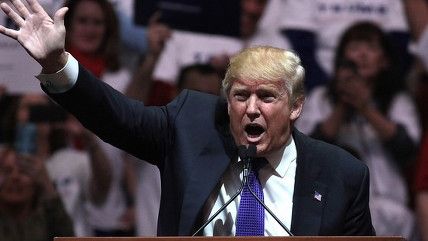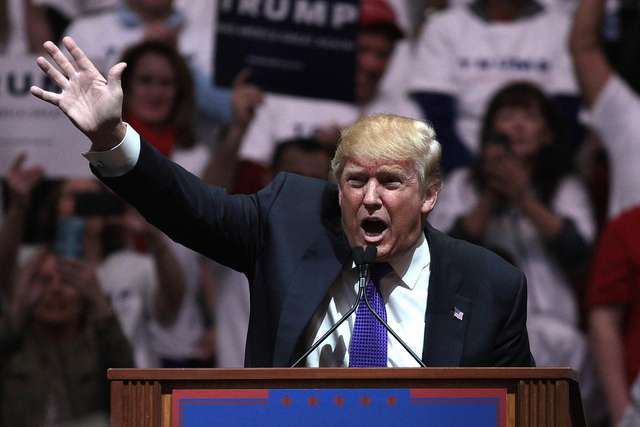Donald Trump and the Heckler's Veto: New at Reason
How the arrest of an anti-communist Catholic priest in the 1940s explains Donald Trump's right to free speech.

In 1946, a Roman Catholic priest gave

a fiery speech in a jam-packed Chicago venue that implied then-President Harry Truman was too comfortable with communism. His supporters were enthralled, his detractors were outraged, and after he refused a request by the Chicago police to stop speaking, a riot broke out. The priest was later arrested, charged with incitement, and ultimately convicted. The case was appealed all the way to the Supreme Court, where it was overturned and thereby "ushered in the modern judicial understanding that has informed the present-day parameters of the freedom of speech."
Andrew Napolitano writes, "this ruling generally barred the punishment of speakers who are expressing political opinions and held that the First Amendment needs breathing room." Napolitano explains that the court warned against allowing audiences to enforce a "heckler's veto," or the shutting down of speakers with whom they disagree. With regards to last week's aborted Donald Trump rally in Chicago, the question of whether or not the billionaire was subjected to a heckler's veto deals with legal issues that are "complex and subtle, involving property rights and free speech."


Show Comments (0)